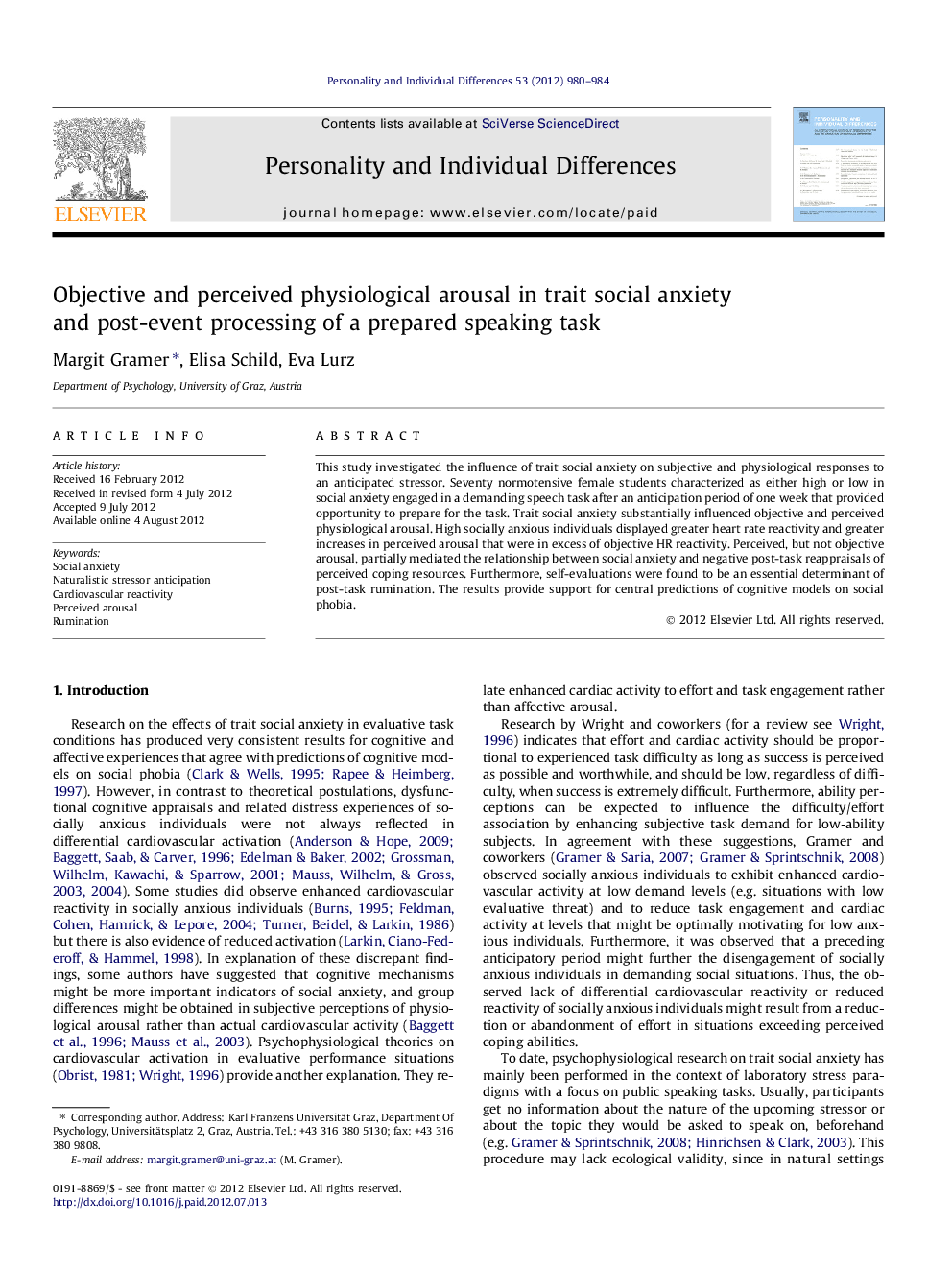| Article ID | Journal | Published Year | Pages | File Type |
|---|---|---|---|---|
| 891320 | Personality and Individual Differences | 2012 | 5 Pages |
This study investigated the influence of trait social anxiety on subjective and physiological responses to an anticipated stressor. Seventy normotensive female students characterized as either high or low in social anxiety engaged in a demanding speech task after an anticipation period of one week that provided opportunity to prepare for the task. Trait social anxiety substantially influenced objective and perceived physiological arousal. High socially anxious individuals displayed greater heart rate reactivity and greater increases in perceived arousal that were in excess of objective HR reactivity. Perceived, but not objective arousal, partially mediated the relationship between social anxiety and negative post-task reappraisals of perceived coping resources. Furthermore, self-evaluations were found to be an essential determinant of post-task rumination. The results provide support for central predictions of cognitive models on social phobia.
► Naturalistic stressor anticipation had no detrimental effects. ► Socially anxious individuals displayed greater objective and perceived arousal. ► Increases in perceived arousal were in excess of objective HR reactivity. ► Perceived arousal partially mediated group differences in post-task appraisals. ► Post-task appraisals were an essential determinant of post-task rumination.
